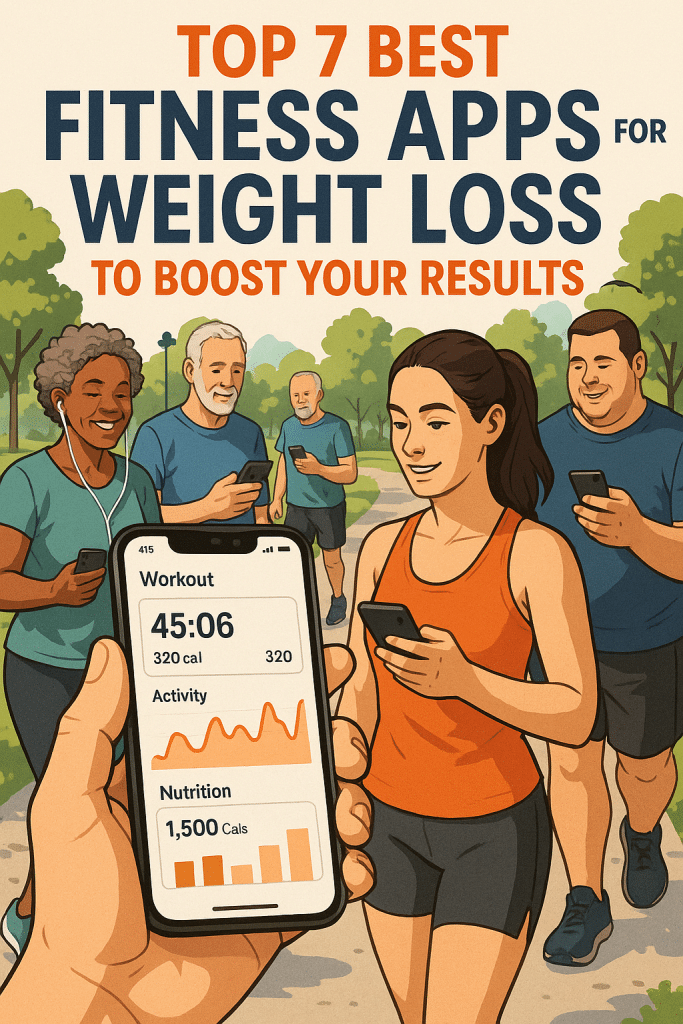When it comes to shedding pounds and improving overall health, technology can be your most powerful ally. If you’re like me—someone who’s passionate about fitness and keen on finding tools that actually deliver—then you already know how crucial the right app can be in keeping you motivated and on track. The best fitness apps for weight loss combine smart workout plans, nutrition guidance, and recovery features, all tailored to your unique goals. They not only guide you through your routine but also offer personalized support to help you overcome obstacles.
In this article, I’ll dive deep into how fitness apps revolutionize weight loss, what key features to look for, and review seven of the top apps currently available. Plus, I’ll share insights on combining these apps with tech gadgets and how the future of fitness apps promises even more adaptive, AI-driven experiences. Whether you’re a seasoned athlete or a beginner, this comprehensive guide will help you make informed decisions so you get the best bang for your buck—both in time and results.
Understanding the Role of Fitness Apps in Effective Weight Loss
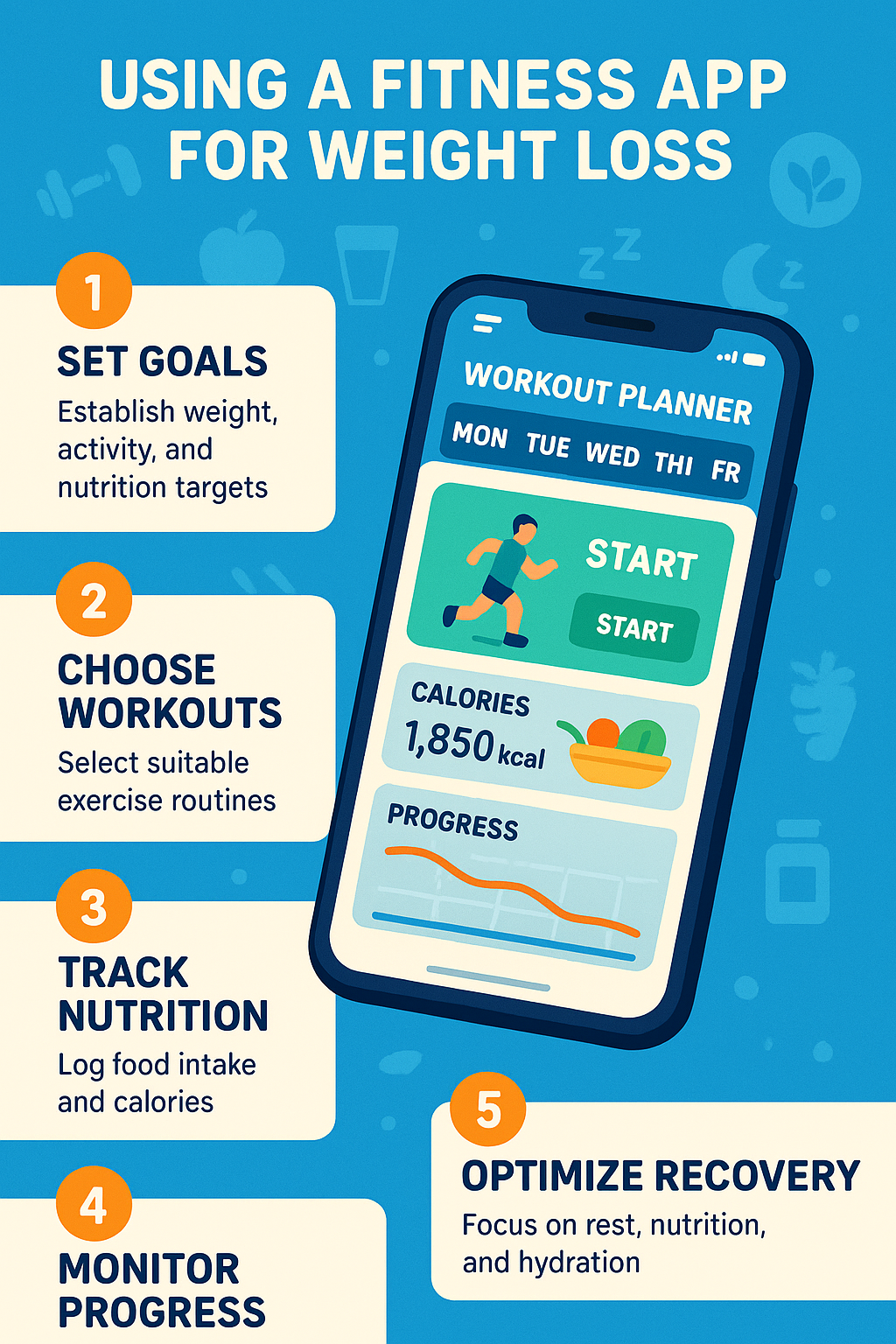
The modern fitness app is more than just a digital stopwatch or a simple step counter; it’s a holistic tool designed to optimize your workouts, diet, and recovery. Weight loss is a complex process that requires consistent effort and smart planning, and this is precisely where fitness apps shine.
How Technology Enhances Workout Efficiency and Motivation
Technology amplifies workout efficiency by providing structured routines that adapt to your progress. For example, AI-powered apps like Zing Coach create workout plans based on your fitness level and personal data, meaning no more guesswork or wasting time on ineffective activities. These apps use data analytics to ensure exercises target fat burning while preserving muscle mass, often incorporating High-Intensity Interval Training (HIIT), which research confirms as superb for fat loss.
Motivation is another critical component of success. Hundreds of studies link social support and gamification to improved adherence to fitness routines. Many fitness apps tap into this by offering community challenges, badges, and leaderboards, fostering friendly competition and accountability. Apps like Fitbit Premium emphasize this social dynamic combined with mindfulness coaching, addressing not just physical but mental barriers to weight loss.
Integration of Nutrition and Recovery Features in Modern Apps
Losing weight isn’t only about burning calories; what you eat and how well you recover are equally important. Fitness apps that offer calorie tracking and nutrition coaching help you maintain a calorie deficit safely, ensuring you don’t sacrifice muscle or energy. For instance, Noom excels not just in calorie tracking but in behavioral psychology, educating users on food choices and mindset shifts, which are vital for sustainable results.
Recovery tracking is another advanced feature becoming more prevalent. Sleep quality, rest periods, and even injury prevention strategies are integrated into apps like Fitbit Premium and PUSH, helping you avoid burnout and overtraining—a common pitfall for those aggressively pursuing weight loss. Sleep and recovery data are often synced with wearable devices to provide actionable insights on when to push harder or take it easy.
Essential Features to Look for in the Best Fitness Apps for Weight Loss
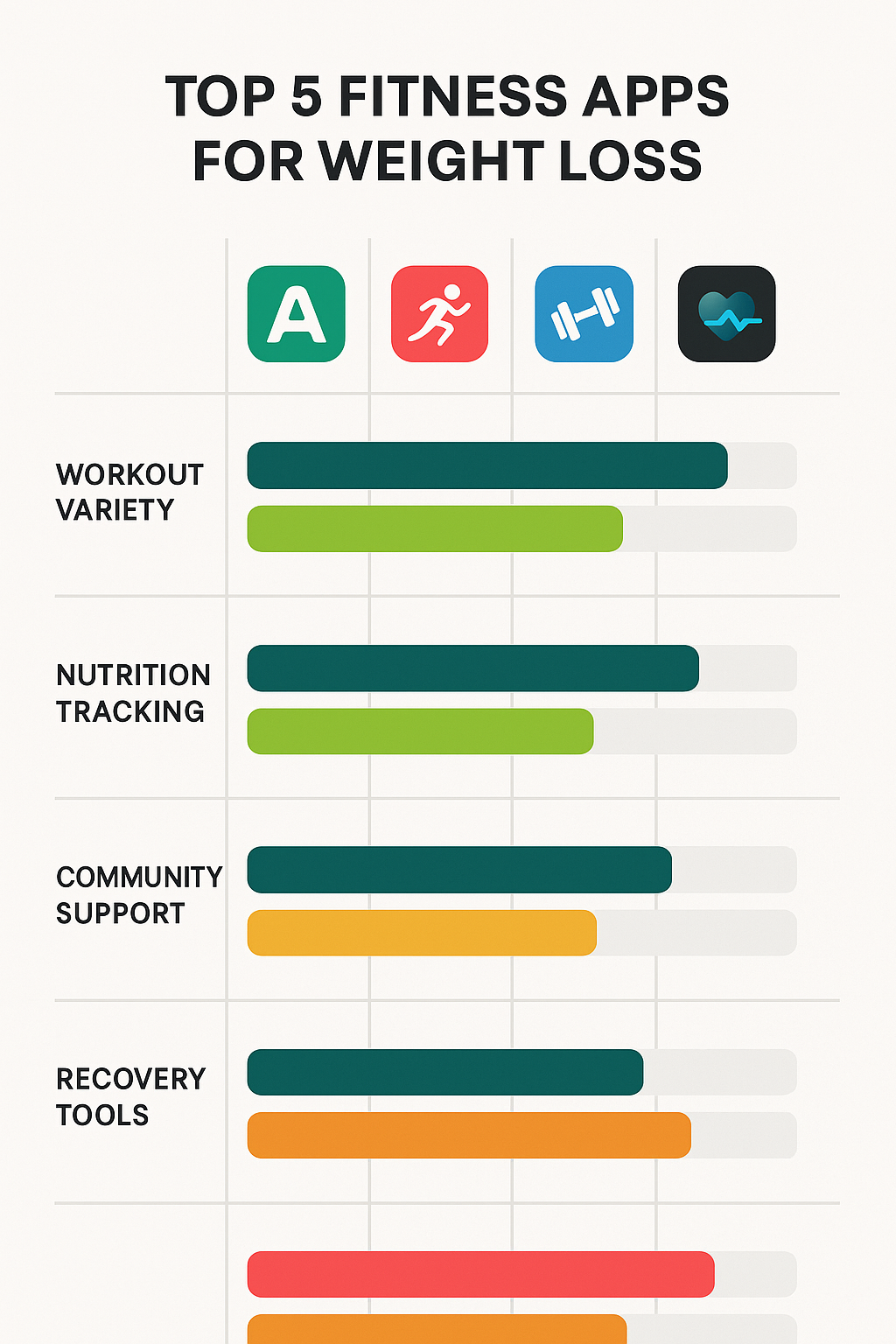
To pick an app that truly boosts your weight loss game, it’s vital to understand the must-have features that make a difference.
Personalized Workout Plans and AI-Powered Training
Personalization is a game-changer. Apps that use AI, like Zing Coach and PUSH, analyze your progress, fitness level, and even variables like stress and sleep, tailoring workouts that evolve as you improve. This ensures you’re consistently challenged without risking injury or plateaus.
For example, PUSH designs training programs with scientific models such as daily undulating periodization and progressive overload, proven techniques to maximize fat loss and muscle gain. This level of customization beats generic workouts found in many apps and helps expedite weight loss.
Calorie Tracking and Nutrition Coaching Integration
Calorie and macronutrient tracking is non-negotiable for weight loss. Apps with integrated meal planning and food databases, such as Noom and Fitbit Premium, simplify healthy eating by providing personalized nutrition plans and behavioral coaching. Noom, particularly, uses cognitive behavioral therapy (CBT) techniques to help users modify habits, which is critical when calorie deficits alone aren’t enough.
Moreover, some apps sync with nutrition platforms or barcode scanners, making food logging seamless. This integration reduces errors in calorie counting, which could otherwise stall progress.
Progress Tracking and Goal Setting Tools
Keeping tabs on your advancement not only motivates but allows you to recalibrate strategies. Most top fitness apps provide detailed progress reports—weight, body measurements, workout completion, and calories burned. Apple Fitness+, combined with Apple Watch, delivers real-time metrics during workouts, letting you see how each session impacts your goals.
These tools often include goal-setting features to break your weight loss journey into manageable milestones. Setting achievable targets reinforces positive behavior and helps avoid overwhelm.
Recovery Monitoring: Sleep, Rest, and Injury Prevention
Many overlook recovery, but apps like Fitbit Premium and PUSH emphasize its importance by monitoring sleep patterns and stress. Fitbit Premium offers advanced sleep tools with sleep score breakdowns, which highlight how well rest supports your fitness.
Apps can also suggest rest days or alternative recovery workouts (e.g., yoga or stretching) based on your data, preventing injuries that derail progress. This holistic approach is essential for anyone serious about weight loss and sustainable fitness.
Social Features and Community Engagement for Motivation
Engagement through community challenges and forums keeps morale high. Nike Training Club, for example, offers a vast library of workouts led by expert trainers and encourages participation in global challenges, fostering camaraderie.
Some apps provide leaderboards and shareable progress badges, motivating you to stick with your routine. For those who thrive on social interaction, this support system can be the difference between giving up and pushing through.
Detailed Reviews of the Top 7 Best Fitness Apps for Weight Loss
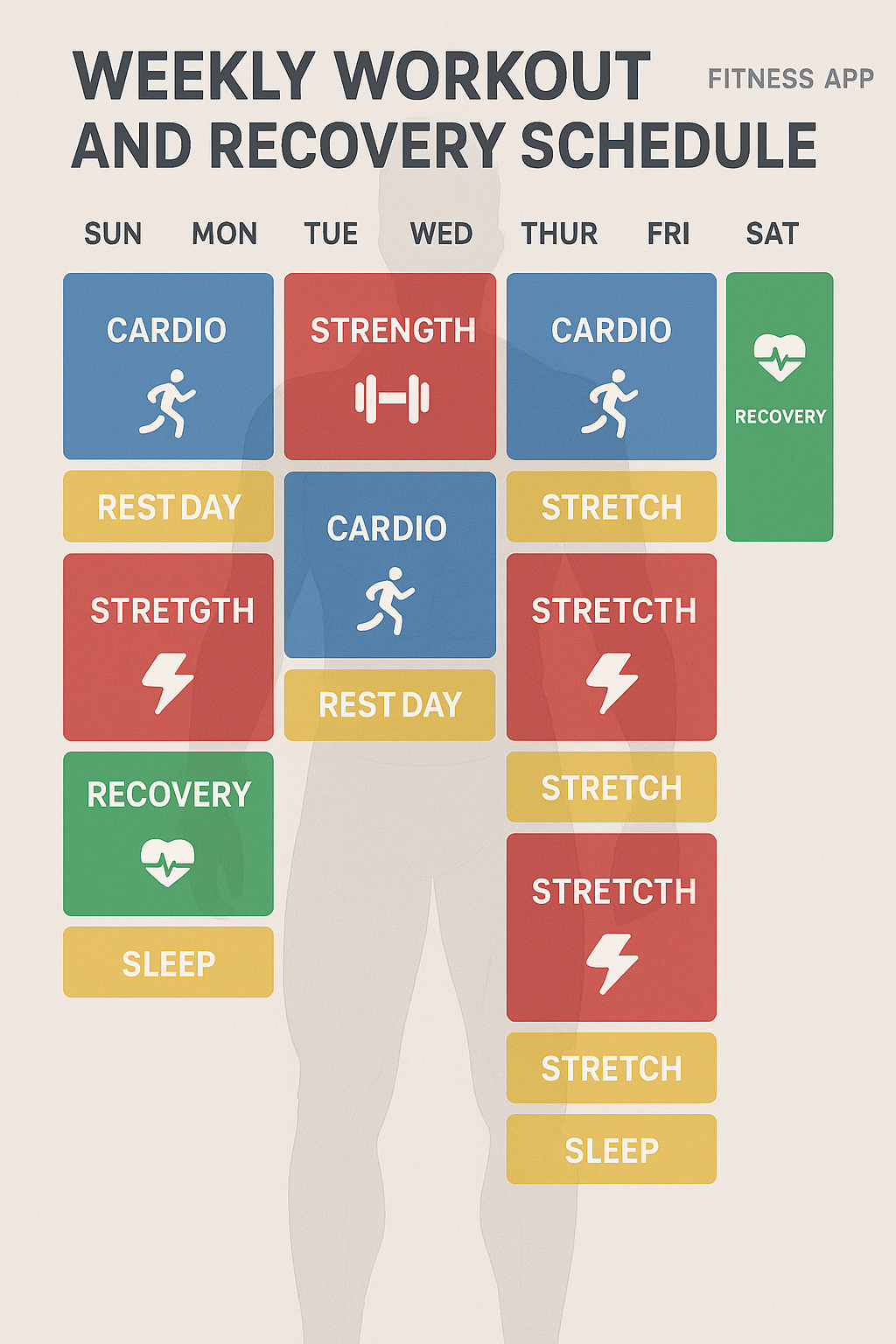
Let’s look at seven standout apps that excel in blending workouts, nutrition, recovery, and motivation for weight loss.
Zing Coach: AI-Driven Personalized Workouts and Body Composition Scans
Zing Coach offers over 400 guided exercises with plans personalized by AI based on your body composition, fitness tests, and goals. This scientific approach ensures you engage in efficient fat-burning routines that evolve with your progress. The app also includes body scans and fitness testing to provide accurate feedback.
Users appreciate the clear pricing model with subscription transparency and solid customer support. Best for users who want a high-tech, data-driven weight loss companion.
Fitbit Premium: Comprehensive Health Insights and Mindfulness Programs
Fitbit Premium elevates your health data use by integrating guided programs focused on movement, sleep, and nutrition. Its partnership with Peloton adds access to boutique classes such as cycling, boxing, and pilates, diversifying workouts. Unique to Fitbit is the strong emphasis on mindfulness and recovery tools, which are crucial for sustainable weight loss.
Subscription offers a 90-day free trial for new users, making it accessible for those wanting to test premium features.
Official site: www.fitbit.com/premium
Apple Fitness Plus: Diverse Workouts with Seamless Apple Watch Integration
Apple Fitness+ integrates tightly with Apple Watch, providing real-time workout metrics. It offers a variety of 12 workout types from HIIT, strength, yoga to mindful cooldowns and guided meditations. The app is perfect for people seeking an all-in-one fitness and wellness experience tailored dynamically based on user input and preferences.
It supports family sharing, so multiple users can benefit under one subscription.
Official site: apple.com/apple-fitness-plus
PUSH: Science-Based Training Programs and Real-Time Performance Tracking
PUSH utilizes a research-based algorithm to deliver personalized strength training and fat loss workouts that adapt to your fatigue and progress over time. With real-time tracking and a progressive overload system, it’s suited for gym users seeking efficient resistance training regimes.
It also syncs with Apple Health for holistic data monitoring.
Runna: Personalized Running Plans with Holistic Coaching
For runners focusing on weight loss, Runna offers bespoke running plans including strength training, injury prevention, and nutrition coaching. The blend of aerobic exercise with cross-training helps maximize fat burning and endurance safely.
Now part of Strava, Runna integrates well with popular fitness devices and encourages community support.
Nike Training Club: Extensive Free Workouts and Expert Guidance
Nike Training Club features more than 200 free workouts led by top trainers, including strength, plyometrics, yoga, and mobility sessions lasting 15 to 45 minutes. Its personalized training plans adapt based on your input and progress, ideal for beginners and seasoned athletes.
Nike’s no-cost premium access for members makes it an exceptional value.
Official site: nike.com/ntc-app
Noom: Psychology-Based Weight Loss with Coaching and Behavior Change
Noom combines calorie tracking with psychology-driven coaching. Certified coaches guide users through habit formation, emotional eating challenges, and sustainable lifestyle changes. Education on nutrition and behavior modification makes this app stand out for long-term success.
Though subscription-based, Noom offers unique tools for those struggling with mindset-related barriers to weight loss.
Comparing Free vs. Premium Features Across These Fitness Apps
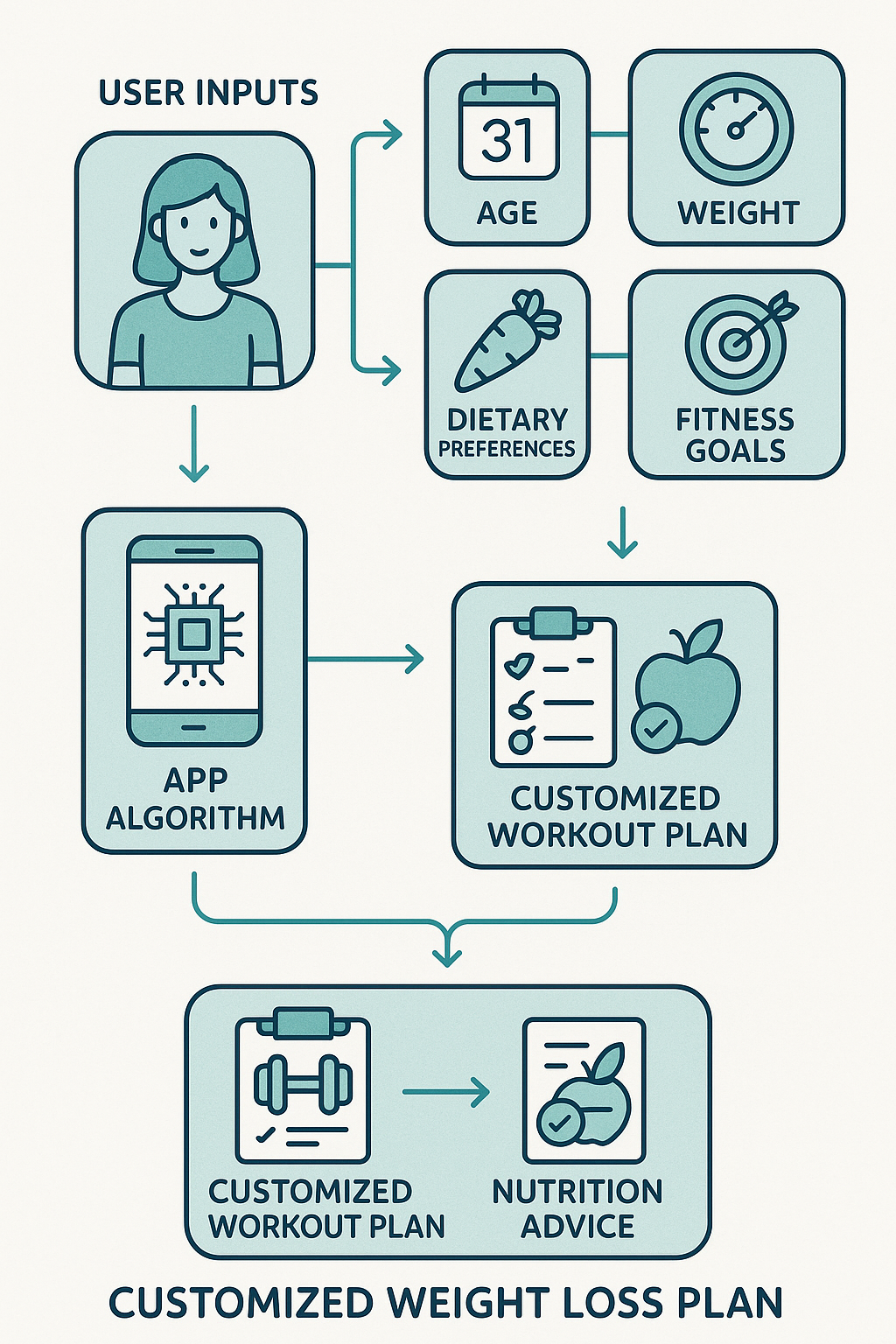
Many fitness apps offer tiered access—free basic plans backed by optional premium subscriptions. Free versions typically provide limited workouts and basic tracking, which might suffice if you’re just starting or on a budget. However, premium plans unlock personalized coaching, deeper analytics, meal planning, and community features.
For instance, Nike Training Club offers extensive free content, whereas Fitbit Premium and Apple Fitness+ require subscriptions for guided programs and mindfulness content. Noom’s holistic coaching is available only in paid versions, but its focus on psychology makes it invaluable for many.
Most apps include free trials, making it easier to evaluate whether premium perks justify the cost. Subscription prices range broadly—from around $7 per month (billed annually) to about $10 monthly—so weigh features carefully against your goals.
Enhancing Your Weight Loss Journey: Combining Apps for Workouts, Nutrition, and Recovery
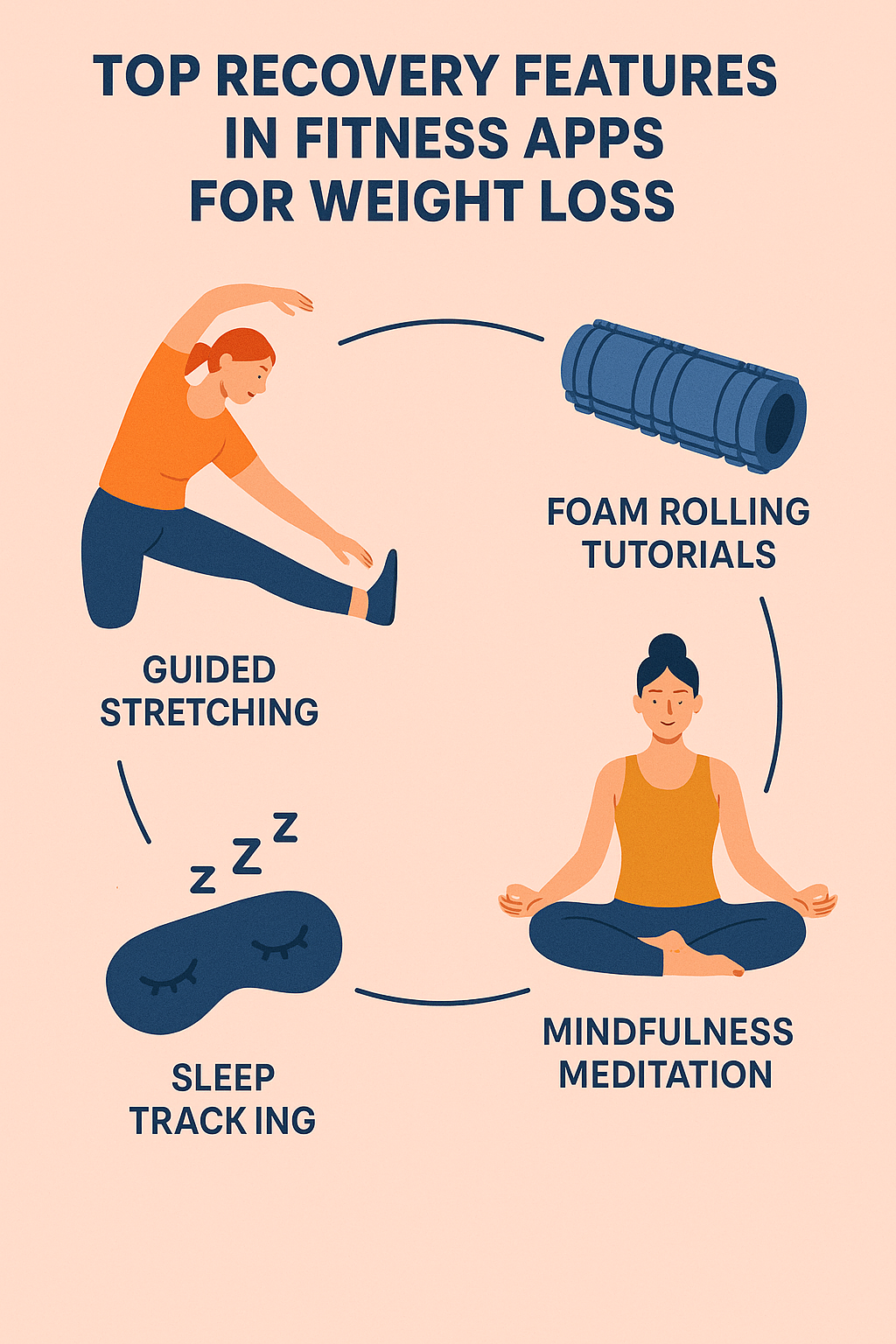
Using one app can be helpful, but combining apps can create a powerhouse system. For example:
- Use Zing Coach or PUSH for personalized workouts,
- Pair that with Noom or Fitbit Premium for nutrition coaching and calorie tracking,
- Add Fitbit Premium or Apple Fitness+ for recovery monitoring and mindfulness sessions.
This holistic ecosystem gives you a 360-degree view of your fitness and health.
Integrating Wearable Devices for Maximum Data and Motivation
Wearables like Fitbit, Apple Watch, or Garmin play perfectly with these apps to collect heart rate, activity, sleep, and more. Integration means your app recommendations are based on real-time data, boosting workout effectiveness and recovery.
Wearables also drive motivation through alerts, goal reminders, and social challenges.
Unique Insights: The Future of Weight Loss Apps with Adaptive AI and Recovery Science
The next wave of fitness apps leans heavily into AI-powered personalization and recovery science. Expect apps to:
- Use machine learning models to anticipate your workout readiness based on stress, sleep, and prior sessions,
- Offer adaptive workout plans that evolve instantly,
- Integrate mental wellness coaching seamlessly alongside physical training,
- Leverage community analytics for more tailored social motivation.
Recovery tracking, including sleep and injury prevention, will become standard, emphasizing that weight loss isn’t just about harder workouts but smarter ones.
Tips for Choosing the Best Fitness App for Your Unique Weight Loss Goals
When selecting an app, consider:
- Your fitness level and goals: Beginners may prefer Nike Training Club or Apple Fitness+, while intermediate or advanced users might benefit from PUSH or Zing Coach.
- Technology ecosystem: Apple users get the best synergy with Fitness+, while Android users might lean toward Fitbit or Noom.
- Features you value: Prioritize apps with integrated nutrition if that’s a weak spot in your routine.
- User experience: Look for clear interfaces, quality coaching, and robust customer support.
- Budget: Free apps can be great starters, but premium features often provide more value in the long term. Use free trials to test.
Conclusion: Making Informed Choices to Achieve Sustainable Weight Loss with Fitness Apps
Embarking on a weight loss journey can be challenging, but with the right tools—the best fitness apps for weight loss—you set yourself up for success. These apps combine personalized workouts, nutrition guidance, recovery monitoring, and community motivation into convenient platforms designed to fit your lifestyle. From the AI-driven precision of Zing Coach to the behavior-focused coaching of Noom, the options available empower you with science-backed strategies to lose weight effectively and sustainably.
Remember, technology is just part of the equation. Commitment, consistency, and listening to your body remain key. Use these apps to support your journey, not replace fundamental habits. Try multiple platforms if needed—many integrate perfectly—to build a system that keeps you energized and engaged.
Ready to take control of your fitness journey? Download one of these top fitness apps today, explore free trials, and find the perfect fit that motivates you every step of the way. Your weight loss breakthrough is just a tap away!
FAQs About the Best Fitness Apps for Weight Loss
Q1: Are the best fitness apps for weight loss effective for beginners?
Absolutely! Many apps like Nike Training Club and Apple Fitness+ offer beginner-friendly workouts and plans suitable for all levels, enabling gradual progress without injury risk.
Q2: Can fitness apps replace a personal trainer for weight loss?
While apps provide expert-designed workouts and coaching, they lack personalized, real-time feedback from a trainer. That said, AI-powered apps like Zing Coach and PUSH come close, offering adaptive training based on your inputs.
Q3: Do these fitness apps include nutrition tracking?
Yes, particularly Noom and Fitbit Premium integrate comprehensive calorie tracking and nutrition coaching, ensuring your diet supports weight loss efforts.
Q4: How do fitness apps support recovery during weight loss?
Apps such as Fitbit Premium monitor sleep quality, stress, and recommend rest days or lighter workouts, helping to prevent burnout and facilitate muscle repair crucial for fat loss.
Q5: Are there free options among the best fitness apps for weight loss?
Yes, apps like Nike Training Club provide extensive free workout libraries. Others like Zing Coach and Noom offer limited trial periods before subscription, so you can explore features before committing.
Quick Takeaways/Key Points
- Fitness apps optimize weight loss through personalized workouts, nutrition coaching, and recovery tracking.
- AI-powered apps like Zing Coach and PUSH tailor programs dynamically based on your data.
- Nutrition integration, especially calorie tracking, is vital—Noom excels in this area with behavior science support.
- Recovery monitoring (sleep and injury prevention) is an emerging must-have feature.
- Combining multiple apps and wearable devices can create a powerful, holistic fitness ecosystem.
- Free trials allow you to explore premium features before subscribing—test what fits your needs best.
- The future of fitness apps lies in adaptive AI personalization and comprehensive wellness support.

